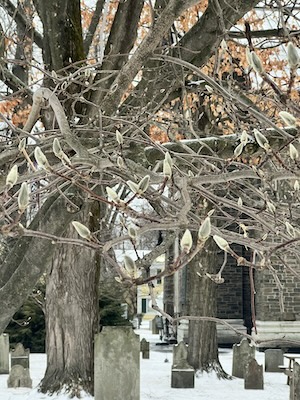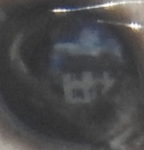https://dailycaller.com/2014/03/04/top-5-failed-snow-free-and-ice-free-predictions/
In a Facebook discussion, I was recently provided this article as evidence that scientists have made failed predictions about climate change, therefore they are not to be trusted. Here is my response.
Thanks for the link. But it doesn’t convince me. First of all, climate science, like all science, is inexact at any given time, but our knowledge is constantly growing. So failed predictions from 10 or 20 years ago are not very relevant to what scientists are saying now. Also, when scientists make estimates, some are going to be high, some are going to be low, some are going to be close to the mark. To cherry-pick one side, while ignoring what the bulk of scientists say, is a dishonest argument. Thirdly, weather is not climate. Short term weather conditions have a lot of randomness in them. Longer-term, larger-scale predictions are more reliable. Climate change is a well-established theory.
That said, let’s look at that article’s 5 points.
1. First link broken, perhaps because it is almost 20 years old. See my first point above. Second link: yes meteorologists are notoriously wrong. Except, we keep demanding predictions from them, because they are less wrong than random guessing.
Also, a prediction like “kids will grow up without snow” is obviously a long-term prediction, so we don’t even know yet if this prediction is wrong.
2. It’s been 10 years since scientists predicted … See my first point.
“‘Adam Watson, from the Centre for Ecology and Hydrology in Banchory, Aberdeenshire, believes the industry has no more than 20 years left,’ the Guardian reported.” This prediction has not yet been falsified.
3. (On this point I specifically reference https://en.wikipedia.org/wiki/Arctic_sea_ice_decline.) Note that this article was published 5 years ago. Sea ice in the arctic has been declining since since 2015, after your article was pubished.
Also, Al Gore is not a scientist, and Dr. Maslowski disagrees with Gore’s interpretion of Maslowski’s work: “Dr Wieslav Maslowski, of the Naval Postgraduate School in Monterey, California, whom Gore apparently used as source, disagreed with Gore’s forecast and told The Times: ‘It’s unclear to me how this figure was arrived at,’ and instead clarified his forecast called for ‘a six-year projection for the melting of 80 per cent of the ice, but he said he expects some ice to remain beyond 2020.'”
Further, the bulk of scientists predict this further away than Maslowski does: “Models that best match historical trends project a nearly ice-free Arctic in the summer by the 2030s. However, these models do tend to underestimate the rate of sea ice loss since 2007. Based on the outcomes of several different models, Overland and Wang (2013) put the early limit for a sea ice free summer Arctic near 2040.”
4. “Environmentalists predicted the end of spring snowfall. In March 2013, the Union of Concerned Scientists predicted that warmer springs would mean declines in snow cover.” These two sentences are contradictory. (“end” is not “declines”) Also, the next paragraph also belies the lead sentence, because it doesn’t contain a prediction at all. So this one is totally dishonest.
5. “There’s going to be good years and there’s going to be god-awful years,” said Terry Root, senior fellow at the Stanford Woods Institute for the Environment. “The globe is warming so rapidly, and variability is increasing so much – both of those things together, I’m glad I don’t have stock in ski areas.”
This is not a time-based prediction, so you cannot say it is false. In fact, it is not false. Some years are good, some years are not. This is a truism for those who live near skiing country, as I do.
The Facebook conversation, for what it’s worth, is at https://www.facebook.com/niall.johnson326/posts/2638687919478711?comment_id=2639359926078177¬if_id=1558783793758159¬if_t=comment_mention.




